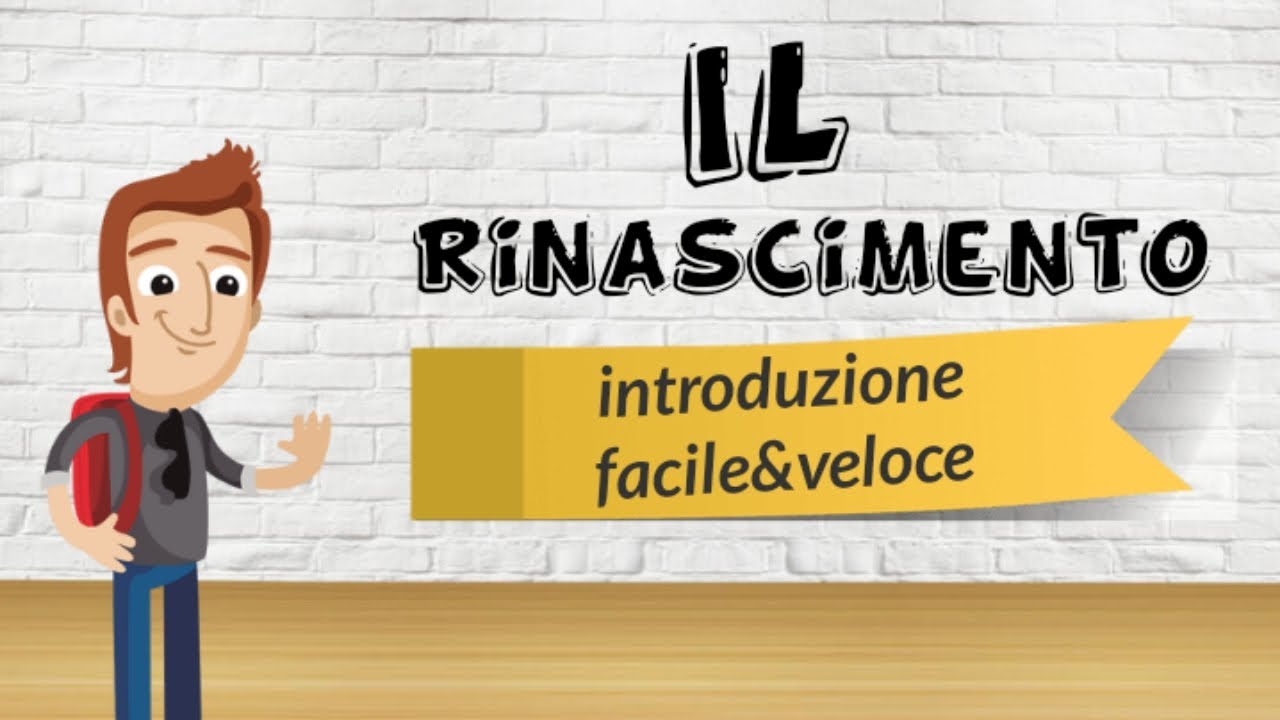Sejarah Renaissance Eropa Part II : Abad Pencerahan Eropa (Aufklarung)
Summary
TLDRThis video explores the Renaissance, highlighting its emergence in Italy through economic prosperity, the rise of the bourgeoisie, and a renewed interest in classical knowledge. It discusses the significant contributions of Muslim scholars and the impact of the printing press in spreading ideas. The movement's emphasis on humanism transformed art, science, and political thought, leading to secularism and the Age of Enlightenment. Notable figures like Michelangelo and Leonardo da Vinci exemplified this cultural shift, which laid the groundwork for modern Western society and the principles of democracy and civil rights.
Takeaways
- 😀 The Renaissance was influenced by multiple factors, including the rise of prosperous trading cities in Italy.
- 😀 The emergence of a new economic elite, known as the bourgeoisie, played a crucial role in shaping Renaissance ideals.
- 😀 The decline of the 'memento mori' philosophy during the Middle Ages shifted towards a focus on enjoying life.
- 😀 The Renaissance was characterized by a revival of interest in Greek and Roman culture, leading to the establishment of scientific institutions.
- 😀 Muslim scholars significantly contributed to European knowledge during the Renaissance, with figures like Ibn Rushd influencing philosophy and medicine.
- 😀 The fall of Constantinople to the Ottoman Empire led to an influx of Greek and Roman texts into Europe, fostering humanism.
- 😀 Humanism emphasized the importance of individual potential and rationality, paving the way for the Renaissance movement.
- 😀 The invention of the printing press by Gutenberg in 1454 facilitated the spread of Renaissance ideas across Europe.
- 😀 The Renaissance influenced the arts, with artists like Michelangelo and Leonardo da Vinci shifting themes from sacred to more earthly subjects.
- 😀 The Enlightenment emerged from Renaissance ideals, promoting reason and individual rights, ultimately leading to the French Revolution.
Q & A
What is the main topic of the video?
-The main topic of the video is the Renaissance and the factors that contributed to its emergence in Europe.
What factors contributed to the rise of the Renaissance?
-Several factors contributed to the rise of the Renaissance, including the emergence of prosperous trading cities in Italy, the growth of the bourgeois class, and the influence of classical Greek and Roman culture.
How did trade influence the development of the Renaissance?
-The booming trade in Italy connected to major trading centers allowed the rise of a new economic elite, the bourgeoisie, who shifted societal perspectives toward seeking happiness and prosperity.
What role did Muslim scholars play in the Renaissance?
-Muslim scholars like Ibn Rushd and Al-Khwarizmi made significant contributions to philosophy, mathematics, and science, influencing European thought by introducing classical knowledge during a time when Europe was experiencing darkness.
What impact did the fall of Constantinople have on the Renaissance?
-The fall of Constantinople to the Ottoman Empire led many Greek and Roman scholars to flee to Europe, bringing valuable manuscripts and knowledge that inspired the Renaissance and the humanist movement.
Who were some notable artists from the Renaissance period?
-Notable artists of the Renaissance included Michelangelo, who painted the Sistine Chapel, and Leonardo da Vinci, known for masterpieces like the Mona Lisa.
What were the key features of Renaissance art and science?
-Renaissance art shifted from sacred themes to more humanistic and realistic representations, while science saw the development of systematic methods of inquiry, notably through figures like Francis Bacon.
How did the Renaissance influence religious thought in Europe?
-The Renaissance fostered secularism, promoting the idea of separating religion from public life, and paved the way for movements like the Reformation initiated by Martin Luther.
What is the significance of the term 'mercantilism' in the context of the Renaissance?
-Mercantilism, which emerged during the Renaissance, emphasized the importance of national wealth through trade and resources, driving European exploration and colonialism.
How did the Enlightenment build upon ideas from the Renaissance?
-The Enlightenment, which followed the Renaissance, emphasized reason and individualism, leading to social and political upheaval like the French Revolution, ultimately shaping modern democratic ideals.
Outlines

This section is available to paid users only. Please upgrade to access this part.
Upgrade NowMindmap

This section is available to paid users only. Please upgrade to access this part.
Upgrade NowKeywords

This section is available to paid users only. Please upgrade to access this part.
Upgrade NowHighlights

This section is available to paid users only. Please upgrade to access this part.
Upgrade NowTranscripts

This section is available to paid users only. Please upgrade to access this part.
Upgrade NowBrowse More Related Video

Why the Renaissance Began in Italy?

Humanismo, Renascimento e seus significados – História – 7º ano – Ensino Fundamental

Il Rinascimento in letteratura: introduzione facile e veloce!

Renaissance & its impact on English Literature

Renascimento e Humanismo | Resumo de aula | História | 7° ANO.

Renascimento - Toda Matéria
5.0 / 5 (0 votes)